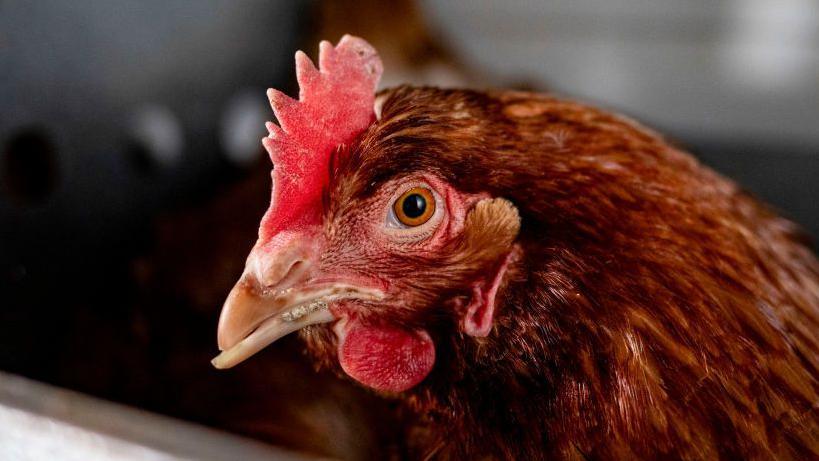'Bird flu means rare breeds will disappear'
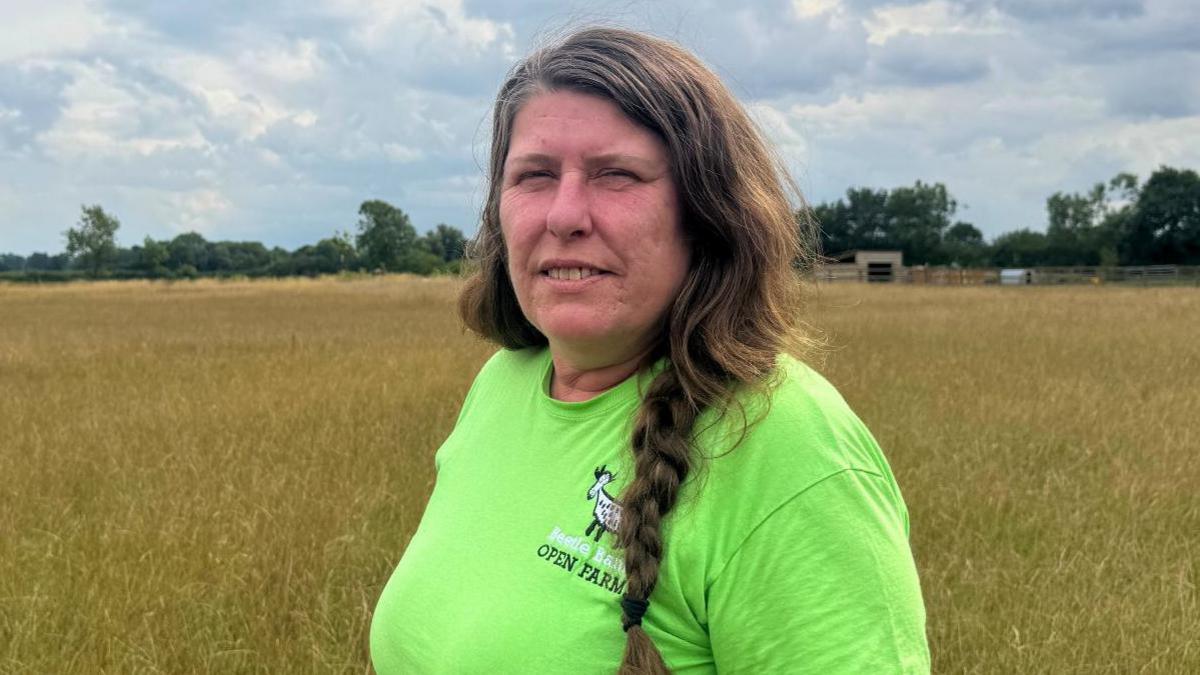
Angela Serino says she breeds fewer chicks due to regular outbreaks of bird flu
- Published
A farmer has said she no longer breeds rare chicks due to more frequent outbreaks of bird flu.
North Yorkshire has seen four confirmed cases of avian influenza in recent weeks, with a mandatory housing order now in place across England.
Angela Serino, who runs Beetle Bank Farm on the outskirts of York, has about 100 birds at her site, including chickens, ducks and a 13-year-old turkey.
"We just have to hope that it doesn't go on for too long because it is cruel, locking all these poor birds up for days, weeks, months," Ms Serino said.
Like other business owners, Ms Serino has taken steps to protect the potential spread of bird flu.
"Unfortunately this is a regular thing now, though it very rarely happens in October," she said.
"We usually look at November or early December before Defra [the Department for Environment, Food & Rural Affairs] hits us with bird flu lockdown.
"We'll have to hope that if we abide by the rules, then it will be a quick fix and not a long-term thing."
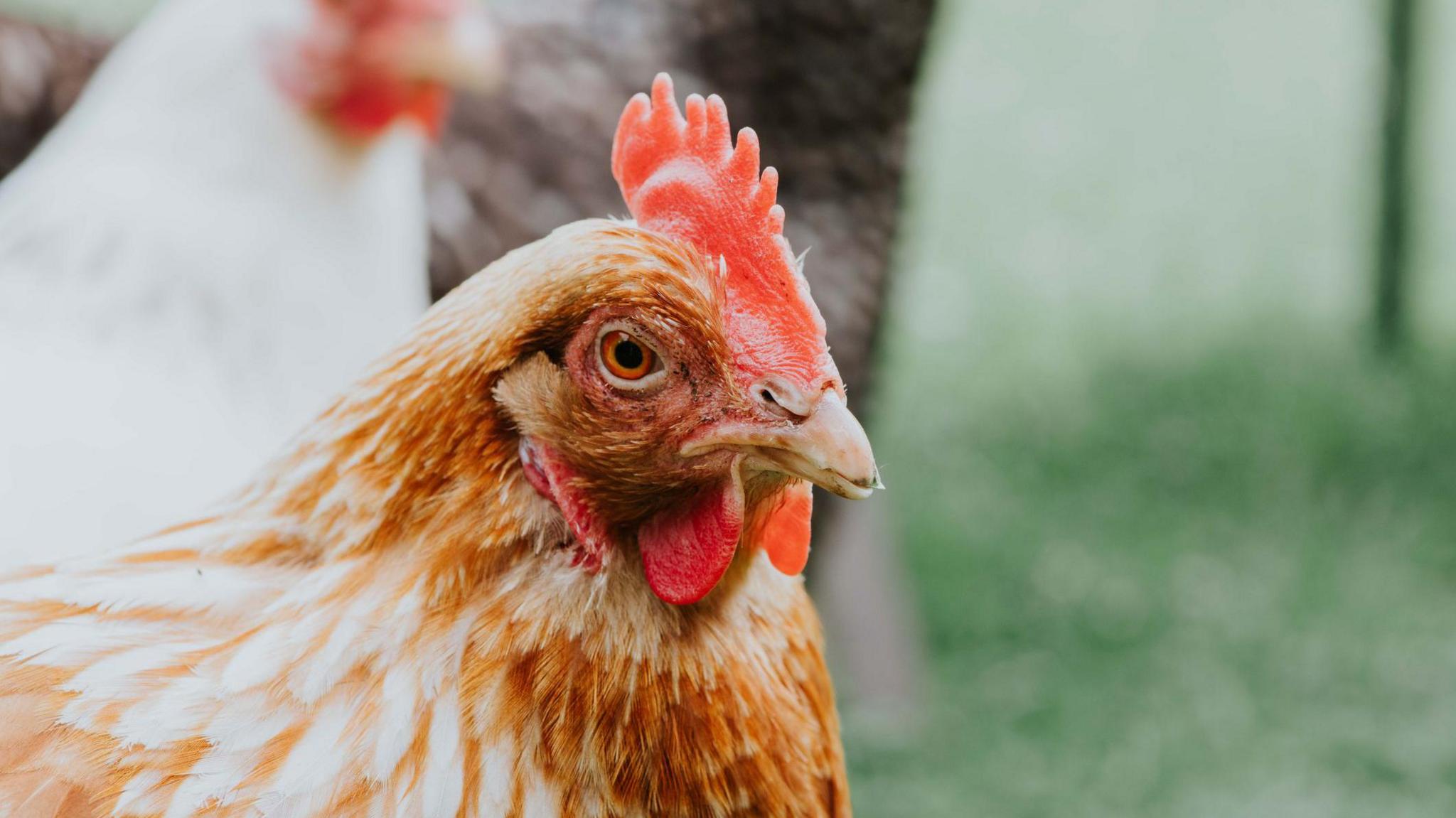
Four cases of bird flu have been confirmed in North Yorkshire
The farmer said she had made changes to her practices because of more regular lockdowns.
"The biggest thing about bird flu is because it's now every single year, we don't really do any breeding any more," she said.
"We used to have 25 breeding cockerels to breed a few hundred chicks a year - now we really only breed 60 to 70 of a handful of different varieties.
"The biggest problem with bird flu is that a lot of the rare breeds that are so beautiful will disappear."
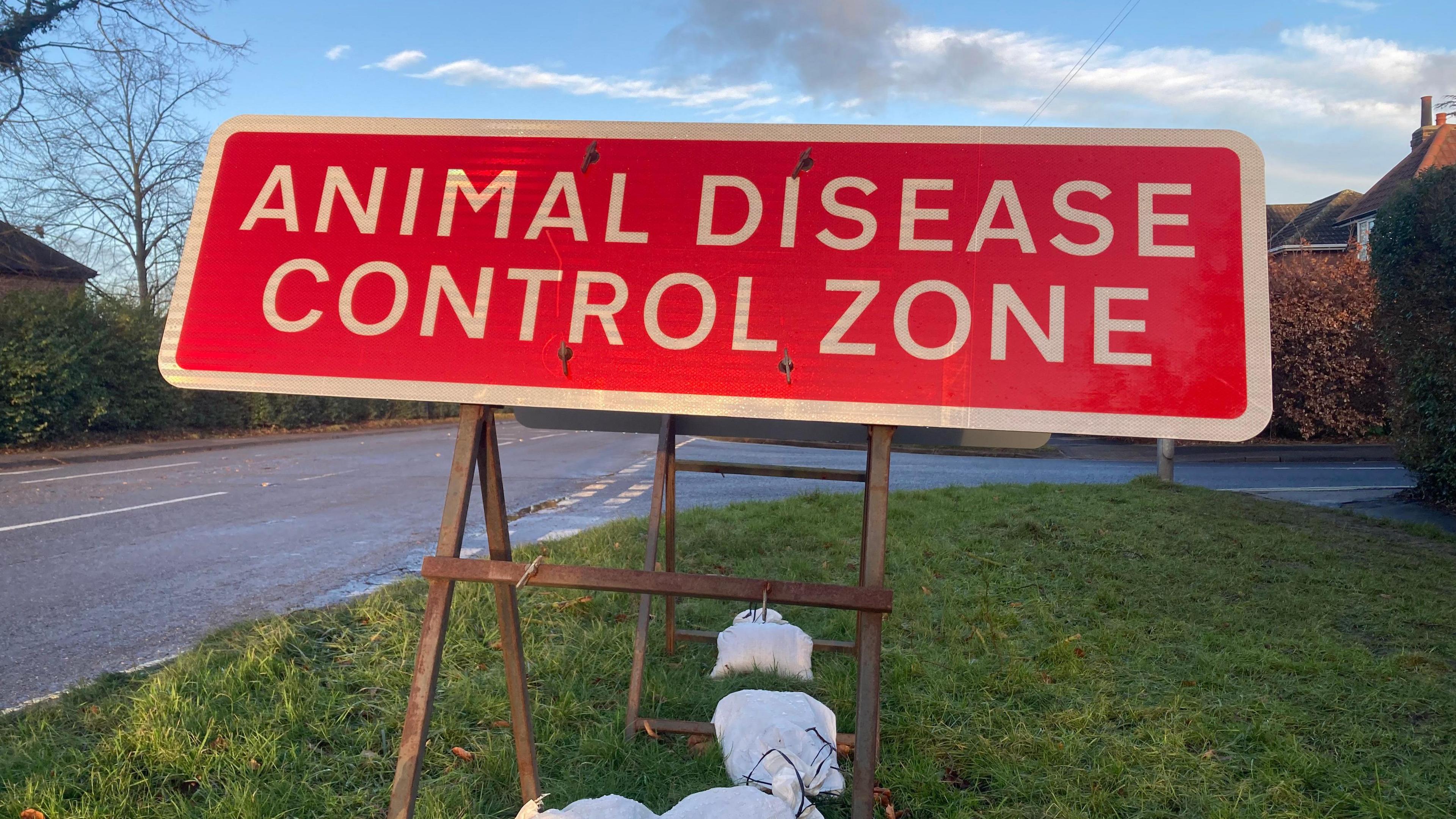
A mandatory housing order is in place across Yorkshire
Elsewhere, at the Filey Bird Garden and Animal Park, where more than 40 species of bird are housed, protective measures are in place all year round.
"[Bird flu] is something that's happening year-on-year now so we have started getting used to it a little bit more," said animal and site manager Chris Holah.
"It's going to be an ongoing thing, so we are obviously having to adapt and move with it."
Just one case at the park, which opened in 2008, could result in its closure, placing 16 jobs there under threat, Mr Holah warned.
"It's a big worry," he added.
The National Farmers' Union county chairman for North Riding and Durham, William Maughan, said the free-range hens on his Darlington farm were now being housed.
"For me it's a concern because I have hens and it's part of my livelihood," he said.
"I take great care looking after them and I'm concerned because I don't want to see them get the disease and have to deal with the consequences."
The farmer said the risk of bird flu increased during migration season in spring and autumn, when birds would move across the country from Europe.
He welcomed stricter measures with the busy Christmas season on the horizon and egg and poultry sales already on the rise.
"I'd like to think there's enough resilience to make sure it doesn't impact supply but there is a risk and hopefully we can manage," he said.
UK Chief Veterinary Officer Christine Middlemiss said: "I appreciate the impact these measures have on industry and am extremely grateful for the continued cooperation of the poultry sector.
"We know from previous years that housing birds will bring the rates of infection down from the high we are currently experiencing."
Get in touch
Tell us which stories we should cover in Yorkshire
Listen to highlights from North Yorkshire on BBC Sounds, catch up with the latest episode of Look North.
Related topics
Related Internet links
- Published6 November
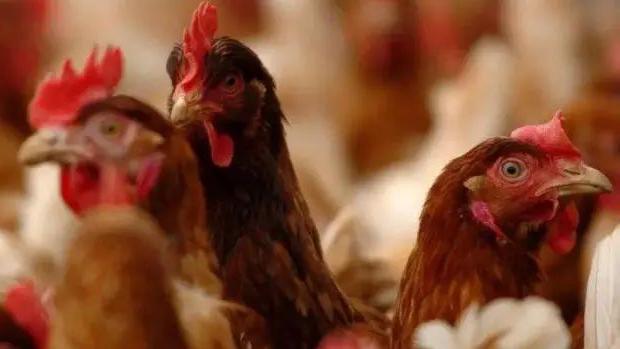
- Published4 November
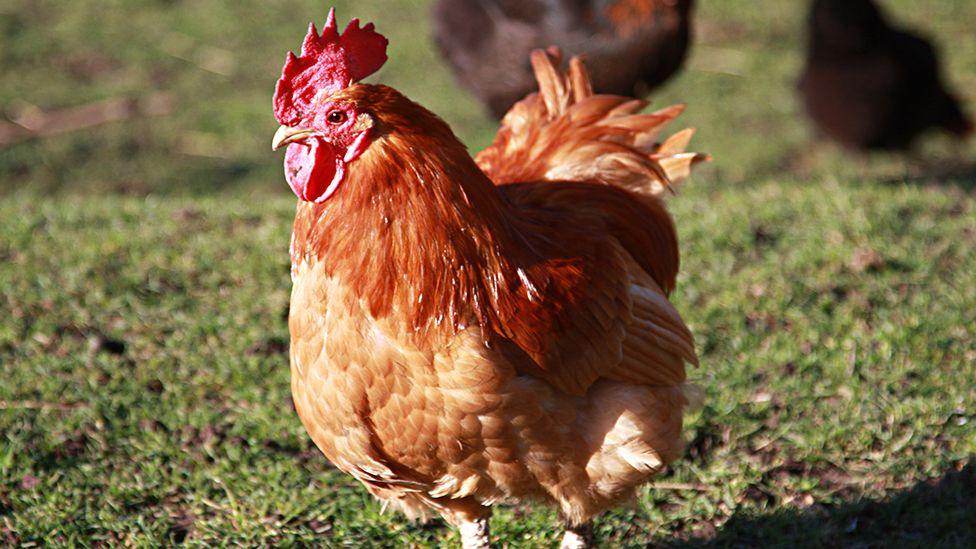
- Published28 October
